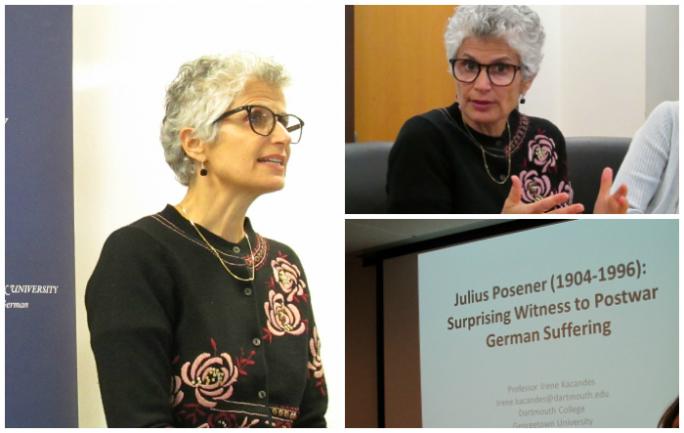Julius Posener (1904-1996): Surprising Witness to Postwar German Suffering – Lecture with Dr. Irene Kacandes
Born in Berlin to an assimilated Jewish family, Julius Posener studied architecture with Hans Poelzig and worked in the office of Erich Mendelsohn. When Hitler came to power, he emigrated to Paris and then to Palestine. In 1941, he enlisted voluntarily in the British army, fighting in North Africa and Italy, and reentering his native Germany in January 1945. Witnessing the profound destruction from the Allied aerial bombings of the area around and in Cologne, Posener also observed the increasingly weakened condition of the locals as food rations were drastically cut. His sense that the Germans were on the verge of starvation led him to draft In Deutschland 1945-46, and to self-publish it in Jerusalem in 1947. In this talk, Dr. Kacandes will give an account of this remarkable book, considering Posener’s actions under the rubric of “co-witnessing,” a concept she has developed to analyze those who take on the burden of others’ suffering (Kacandes 1997, 2009, 2017). By considering the ethical complexities of Posener’s position, she aims to spark discussion of whose suffering we are called to co-witness today.

Guest Dr. Irene Kacandes during her presentation “Julius Posener (1904-1996): Surprising Witness to German Postwar Suffering” on October 16, 2017.
Irene Kacandes holds the Dartmouth Professorship of German Studies and Comparative Literature at Dartmouth College in Hanover, NH. Author or editor of eight books, she specializes in trauma, memory, life writing, and Holocaust studies. Her recent publications include Let’s Talk About Death (written with Steve Gordon, 2015) and Unmapping Eastern Europe (edited with Yuliya Komska, 2017). Kacandes runs the “Interdisciplinary German Cultural Studies” book series at de Gruyter Verlag in Berlin and is immediate Past President of the German Studies Association. She is currently a Norman Raab Research Fellow at the Mandell Center for Advanced Holocaust Studies at the USHMM here in Washington, DC.